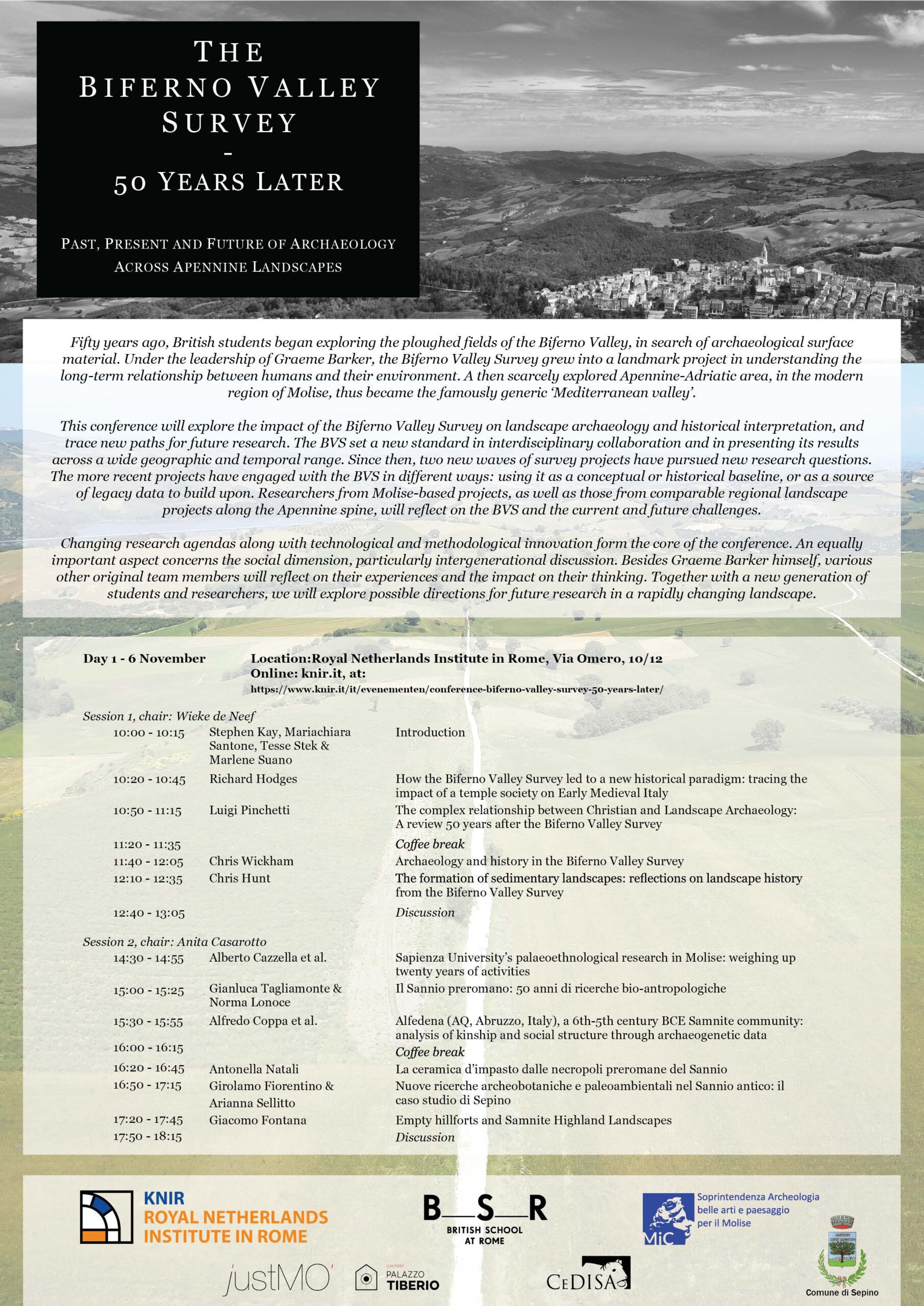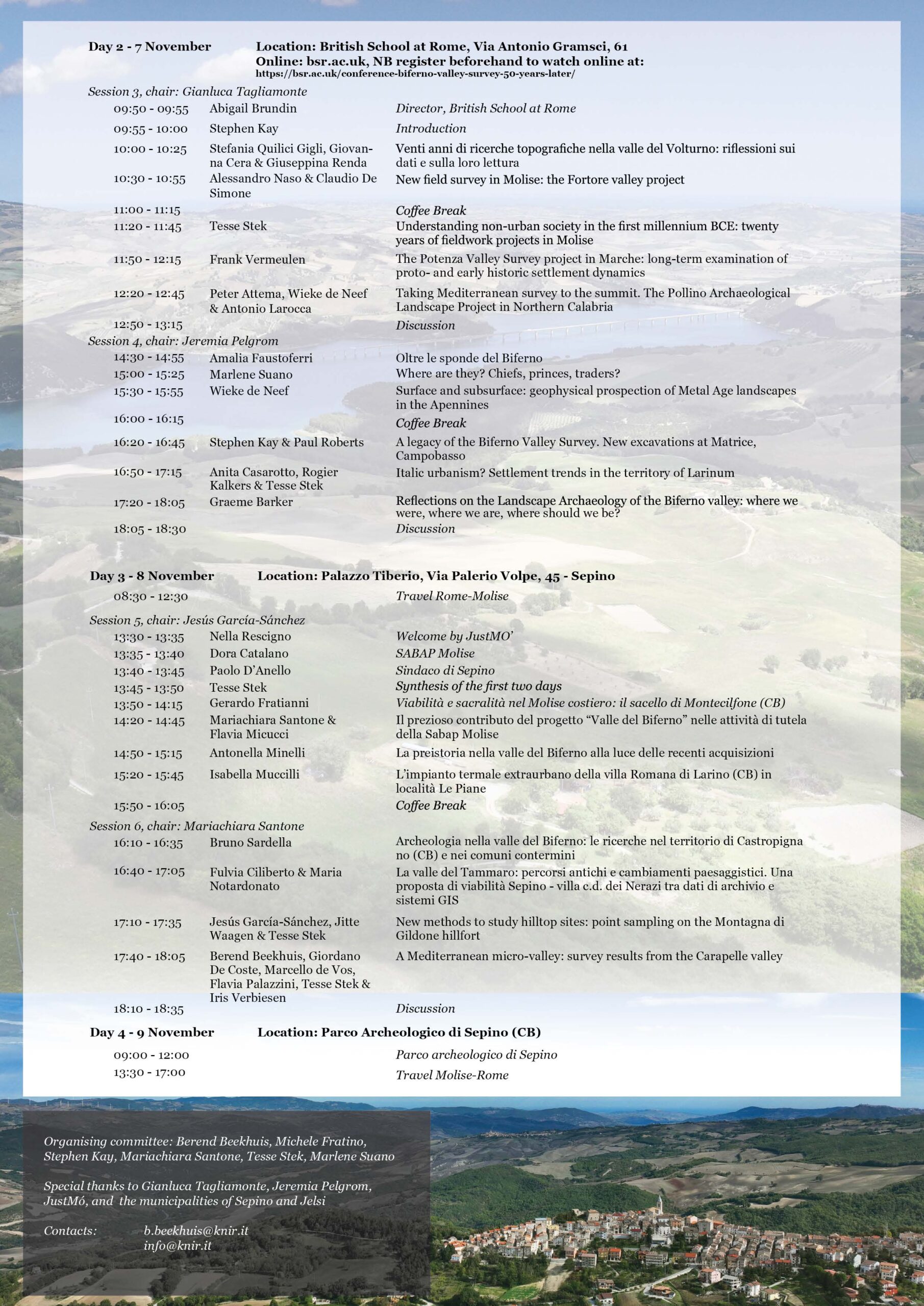Fifty years ago, British students began exploring the ploughed fields of the Biferno Valley, in search of archaeological surface material. Under the leadership of Graeme Barker, the Biferno Valley Survey grew into a landmark project in understanding the long-term relationship between humans and their environment. A then scarcely explored Apennine-Adriatic area, in the modern region of Molise, thus became the famously generic ‘Mediterranean valley’.
This conference will explore the impact of the Biferno Valley Survey on landscape archaeology and historical interpretation, and trace new paths for future research. The BVS set a new standard in interdisciplinary collaboration and in presenting its results across a wide geographic and temporal range. Since then, two new waves of survey projects have pursued new research questions. The more recent projects have engaged with the BVS in different ways: using it as a conceptual or historical baseline, or as a source of legacy data to build upon. Researchers from Molise-based projects, as well as those from comparable regional landscape projects along the Apennine spine, will reflect on the BVS and the current and future challenges.
Changing research agendas along with technological and methodological innovation form the core of the conference. An equally important aspect concerns the social dimension, particularly intergenerational discussion. Besides Graeme Barker himself, various other original team members will reflect on their experiences and the impact on their thinking. Together with a new generation of students and researchers, we will explore possible directions for future research in a rapidly changing landscape.




